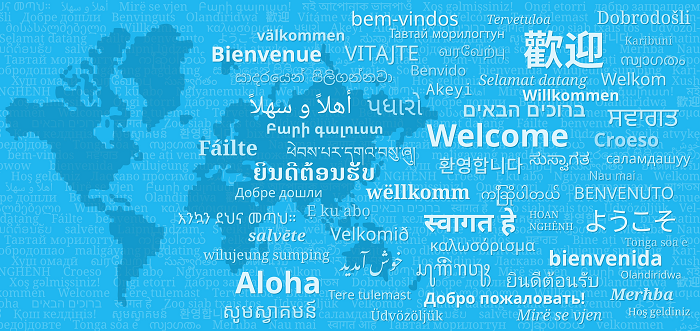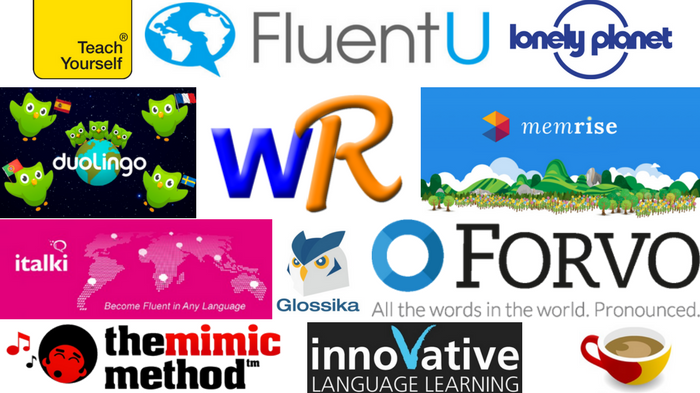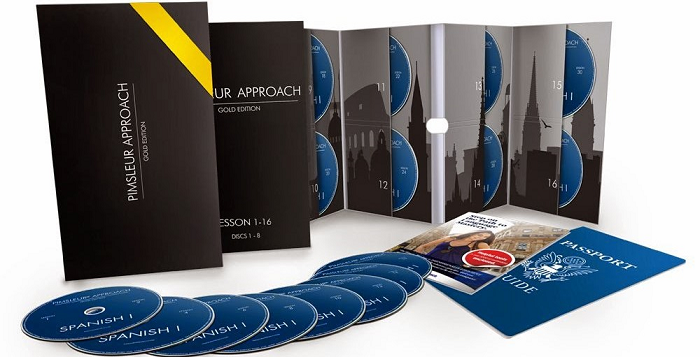Phase 4 — Mastering the Gentleman Spy Skillset
Lesson 5 — Language Learning
LESSON 5: Language Learning

Italy, France, Germany, Spain, Cuba, China. If you want to fully embrace the Gentleman Spy lifestyle, you must travel. To travel well, you must speak the language.
- James Bond is fluent in Italian, French, German, and Russian, and passable in Spanish, Greek, Chinese (Mandarin and Cantonese), and Japanese.
- Jason Bourne speaks Spanish, Portuguese, German, French, Russian, and Dutch.
- Jack Bauer speaks Spanish, German, Russian, and Arabic.
- Jack Ryan speaks Russian.
- Napoleon Solo speaks Spanish, German, Italian, Russian, and Japanese.
If you want to live like a Gentleman Spy, you must be multilingual.
Many guys have taken a foreign language in school, only to end up with no usable ability just a couple of years later. Maybe you travel but miss countless opportunities because you didn't speak the language. Or you've tried to learn a language in the past only to give up in frustration.
Many think "I'm just not good with languages." The good news is, you can be.
Why Learn a Second Language?

While you don't necessarily need to strive to master a dozen languages, the sad fact is that most of the English-speaking world (and most of the rest of the world for that matter) speaks only one language.
In the US, UK, Canada, Ireland, Australia, and New Zealand, most of the population speaks only English. In Central and South America, the Caribbean, and Spain, Spanish is the predominant language. In China, Russia, Japan, and the Middle East, you are most likely to meet and converse with people who only speak their native tongue.
If you expect to get the most out of a life well-traveled, it pays to learn the language(s).
The benefits or being multilingual aren't just for travel. While you do get much greater cultural understanding and appreciation, including catching nuances that are often lost in translation, there are more (and arguably more important) benefits.
- Bi– or multilingual people show greater cognitive performance, even in areas not related to language and thinking in a second language has been shown to help remove deep-seated, misleading biases.
- Learning more languages has been shown to delay the onset of dementia by an average of five years, and in a study of stroke survivors, cognitive recovery was twice as likely for those who spoke more than one language.
- For the younger folks, there are more study abroad options, and for those in the workforce, being multilingual often leads to better opportunities and pay than would be available if you remain mono-lingual.
What Language Should You Learn?

Before you decide to jump in head first and learn something exotic, understand that as you're getting started, it is much easier for an English-speaker to learn a language that shares a similar alphabet and sound profile, rather than a symbol-based alphabet or tonal language. That means that languages like Spanish, French, Italian, and German will be much easier to master than Chinese, Arabic, or even Russian.
Next up is how, when, and why you expect to be able to use your target language. If you've decided to learn Italian but have no Italian family or friends and don't have plans to visit Italy, know that it will be much more difficult to master than a language that you'll be able to use regularly.
For most Americans, and many elsewhere, if you don't already speak Spanish, this should probably be first on your list.
Spanish is the second most widely spoken language in the world (behind Mandarin Chinese), and the most widely used geographically. Learning Spanish gives you access to predominantly Spanish-speaking parts of the United States (southern California, much of Texas, all of Miami, and neighborhoods everywhere), almost all Central and South America, the Caribbean, and Spain. Spanish even has enough similarities with Tagalog that you will understand a lot of conversation in the Philippines (though making yourself understood if you only speak Spanish might be another story). Learning Spanish first is an easy decision for most.
Notes on learning Spanish: you can choose Latin American or Castilian Spanish. Americans and Canadians should generally choose Latin American Spanish. Europeans should probably lean towards Castilian Spanish, though Latin American could be a better choice if you visit the Americas regularly. Everybody else could go either way: Castilian if you plan to visit Spain, or Latin American if you plan to visit the Americas.
For those in the rest of the world, your choices become more varied.
- German and French are the most widely taught second languages (behind English), but their actual daily use is fairly localized.
- Chinese or Japanese might be good choices for certain businessmen.
- Russian, Chinese, and Arabic are good choices for those who work in the military or intelligence communities.
- Portuguese is widely spoken not only in Portugal and Brazil, but also Angola, Mozambique, and Macao.
Whatever language(s) you choose to learn, you'll want [need] to be able to use it regularly, so make smart choices.
How to Learn a Second Language?

With your target language chosen, it's time to get down to the best ways to really learn.
While popular, the Rosetta Stone software does not have a great track record in teaching functional language skills. Neither do many resources that focus on just one sensory pathway (auditory, visual, etc.). College courses and private tutoring vary in price, time commitment, and success rate, limiting their utility in the Gentleman Spy program; you have enough other stuff on your plate that adding multi-hour classes multiple times per week is not the best use of your time or money.
This brings us to two proven pathways for acquiring language ability:
- Pimsleur + Text (easy, functional, structured, limited)
- Roll-your-own customized language learning (fastest and most efficient, but more effort required to figure out what materials and resources work best for you)
Option 1: Pimsleur + Text
This option is for those who want to acquire a new language while investing the least possible mental bandwidth: listen to your audio lessons every day, do a bit of reading or work with phrase and grammar books, and over a couple of months you will gradually acquire a basic ability to get around in your target language. This is as dead-simple as it gets, while remaining truly functional: get the audio lessons, put in the time, and you will speak a new language.
The Pimsleur method is a follow-along audio system on spaced repetition where you are required to recall words at specific intervals necessary to commit them to memory. The program is designed so you complete one 30-minute lesson every day. The lessons are in a listen and repeat format, so over 30 days of 30-minute lessons, you will spend 7.5 hours listening to your language, and 7.5 hours speaking it.
Most major languages are available as "complete" courses (levels 1–3, 90 days), with some extending to full 150-day (levels 1–5) courses that include software and flash cards. Some languages only have the level 1 30-day lesson plans, but even those will give you a firm grasp of pronunciation as you use phrase and grammar books to beef up your vocabulary.
As you complete your 30-minute lessons every day, you will supplement your audio-based learning by using phrase and grammar books.
— When first learning pronunciation, go through the Lonely Planet phrasebooks.
— As you progress (after the first two weeks or so), add in the Teach Yourself books.
— Finally use the Comprehensive Grammar series to master the language.
The training progression here is dead simple:
- Spend 30 minutes every day using the Pimsleur audio materials (available on CD, MP3, or a full software suite)
- Supplement with another 10–30 minutes of study with the text-based materials.
As good as the Pimsleur system is, it is still quite basic. You do need to speak with real people as much as possible. These can be in-person conversations (friends, acquaintances, school clubs, MeetUp groups, etc. are all good places to find native speakers), or you can use Skype or other programs like iTalki to connect with native speakers all over the world. You will never reach true competency — much less fluency — without talking to real people.
To recap: 30 minutes of Pimsleur every day. 10–30 minutes of reading, vocabulary, and grammar whenever you can fit it in. Talk with real people as much and as often as possible.
This is the "easiest" method for usable language acquisition. It's not perfect, and it's not necessarily the most efficient, but if all you do is the Pimsleur course, read a bit, and talk to native speakers when you can, you can attain basic competency in your new language.
Option 2: Roll-Your-Own Language Hacking

The Pimsleur + text method is the low hanging fruit for those who want a plug and play system for language acquisition; buy the materials, follow along, and you'll get better.
For those who want to progress as quickly and efficiently as possible and are willing to put in the effort to do that, you will need to put together your own language hacking toolkit.
Using a roll your own system will require more planning and effort, but that is rewarded by faster language acquisition, more confidence in your ability, and likely a better long-term grasp of the language.
One of the biggest benefits of doing it on your own is making "you-specific" conversation faster. Pimsleur, Rosetta Stone, and other expensive commercial systems are often more focused on travel, business, and formal use than the informal use you are likely to use in your travels. Programming your own learning will allow you to tailor vocabulary and conversation to your wants and needs; you'll get more real conversation ability, faster, with less effort.
To start, you need multiple resources:
- Vocabulary acquisition
- Audio/listening
- Speaking.
Some of these should be easy and some need to be difficult or challenging — you don't progress without effort, after all.
Don't rely on just the stuff you think will work for you. Get out of your comfort zone and try many different resources. You'll be surprised at what ends up working, versus what you thought would work well.
Below is a starter list of resources, almost all of which are available in any language you decide to learn. There will be some differences here and there, but most of these resources are available for all the usual suspects (Spanish, German, French, Italian), and a quick Google search will give you equivalents in other languages like Russian, Arabic, Chinese, Japanese, etc.
Basic Resource Kit — Pick at lease one from each section:
Starter words and phrases: Omniglot Survival Phrases, IE Languages, about.com vocabulary lists, search for cognate lists to get a jumpstart on vocab
Dictionary: WordReference is the standard across many languages, can also search for other language-specific dictionaries
Audio/Listening: Innovative Language (LanguagePod101), Coffee Break Languages, Glossika, Tunein radio app
Pronunciation: Forvo and Mimic Method are available across many languages, and there are specific resources for individual languages as needed
Connect with other speakers: iTalki, Skype, Meetup, HelloTalk, Facebook Groups
Books: Teach Yourself, Colloquial, Lonely Planet phrasebooks
Video: FluentU, trending videos in YouTube
Reading: Lingua.ly allows you to read news top news articles translated into your target language, Alexa.com/topsites/countries/ will give you a list of top sites in each country, if your favorite author is translated into your target language, buy their books and read them
Apps/Websites: Duolingo, Memrise, Anki, Google Translate; Duolingo and Memrise are both free and both offer smartphone apps - highly recommended you use both
Movies/Television: Netflix and Amazon Prime both offer a wide variety of programming in multiple languages. If you're learning for travel, you can also search for the most popular movies or television shows in your target country and watch them.
Check out a few different resources, pick up a book or two, load a couple of apps on your smartphone, and get started practicing, as much and as often as you can.
Don't have time, you say?
— You can plug in headphones and listen to audio resources while you're cleaning your house or put them on in your car while driving to and from work.
— Have 10 minutes at work where you're not doing anything or waiting around? Pull out your phone and do exercises on Duolingo, Memrise, or flip through an Anki deck.
— Take a few minutes at lunch to read phrases or grammar lessons in a phrasebook.
— Instead of zoning out in front of the TV wasting time in the evening, get on YouTube and watch the top videos in your target language.
— Set aside 30 minutes or an hour every night to study with a tutor on iTalki, find a group on Meetup.com to converse with locally, or find someone to chat with via a Facebook group.
Learning a new language isn't like taking a class in school where you need hours of dedicated time to sit and study. With 5–15-minute blocks throughout the day, and different resources to choose from, you can easily rack up an hour of two of language training throughout the day with little to no impact on what you would otherwise be doing.
Whichever route you choose, the biggest thing you'll do here to improve your language ability is to speak with native speakers.
Learning phrases, expanding your vocabulary, or working on your pronunciation or accent at home on your own is fine — you need this practice — but nothing replaces actual conversation with real people to develop language ability. Whether you're an extrovert who naturally seeks out new people, or an introvert who is scared to talk to new people, you need to find a way to make this happen. Online, over the phone, or in person, find native speakers and get to work.
Whether you decide to go with the plug and play Pimsleur + text solution for learning a specific language, or you decide to fully invest yourself and customize your language learning as much as possible, you need to speak more languages if you want to truly live the Gentleman Spy lifestyle. So get out there and get talking.
A Note on Advanced Language Hacking
For those that want all the customizability of the roll-your-own language training with more tutorials, interviews, and massive resource kits for dozens of languages, your best resource is Benny Lewis' Fluent in 3 Months program (full disclosure, this is an affiliate link for a product that I have personally used and recommend wholeheartedly)
Benny's course isn't as much structured training as it is a comprehensive resource showing you how to learn languages.
Many languages.
In the course, you will be introduced to Benny's methods, plus all kinds of free or inexpensive resources for tailoring your studies. While he recommends many of the same tools and resources already mentioned above, his program goes far and beyond the detail that Gentleman Spy can offer in a single training module.
If you decide to get Benny's program, you'll get:
- 8-part Speak from Day One course
- 125-page Language Hacking Guide
- Interviews with language learners, app developers, and others
- Video tutorials for apps, anki decks, iTalki, and more
- Immersion Resource Kits (13 languages), Conversational Connectors (24 languages), and more
- Bonuses including exclusive discounts or extended trial memberships on many of the language learning resources listed above
It's no doubt that both the roll-your-own option and/or the Fi3M course will require more work on your part than the Pimsleur+text approach — you will have to acquire different materials for different languages — but the methods will take you as far as you want to go in your language learning.
If you're looking to get started learning one new language, the roll-your-own method above is the way to go.
If you're serious about becoming a true polyglot and attaining fluency in multiple languages, Benny's course is well worth the money.
Whether you decide to opt for the plug and play Pimsleur+Text route, or decide to roll your own training, it's time to pick your target language, pick your study materials, and get to work.
PROGRAM
In the next lesson...
A chase through the streets. Navigating obstacles. Climbing trees, buildings, and mountains. Living like a Gentleman Spy means moving through your environment at will — that includes up, down, and through any obstacle in your way.


